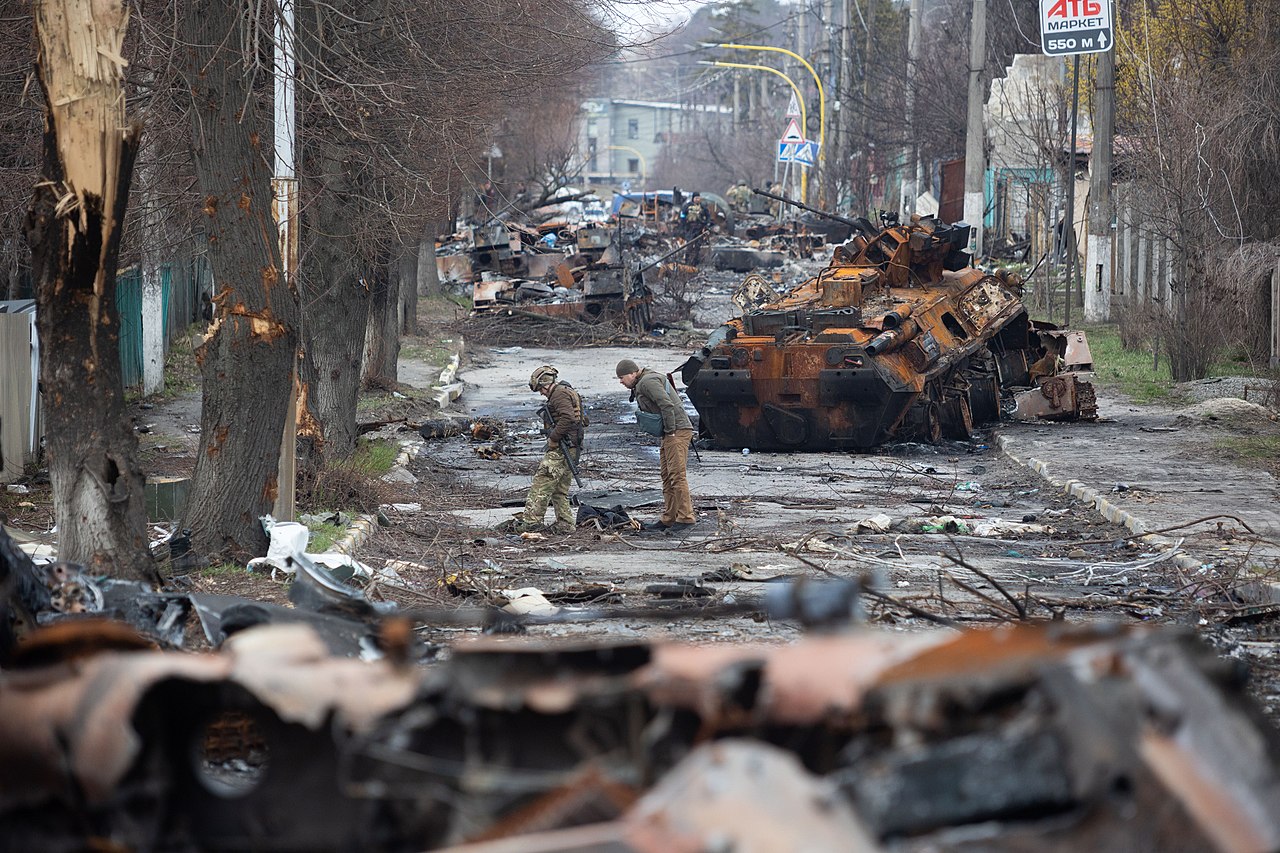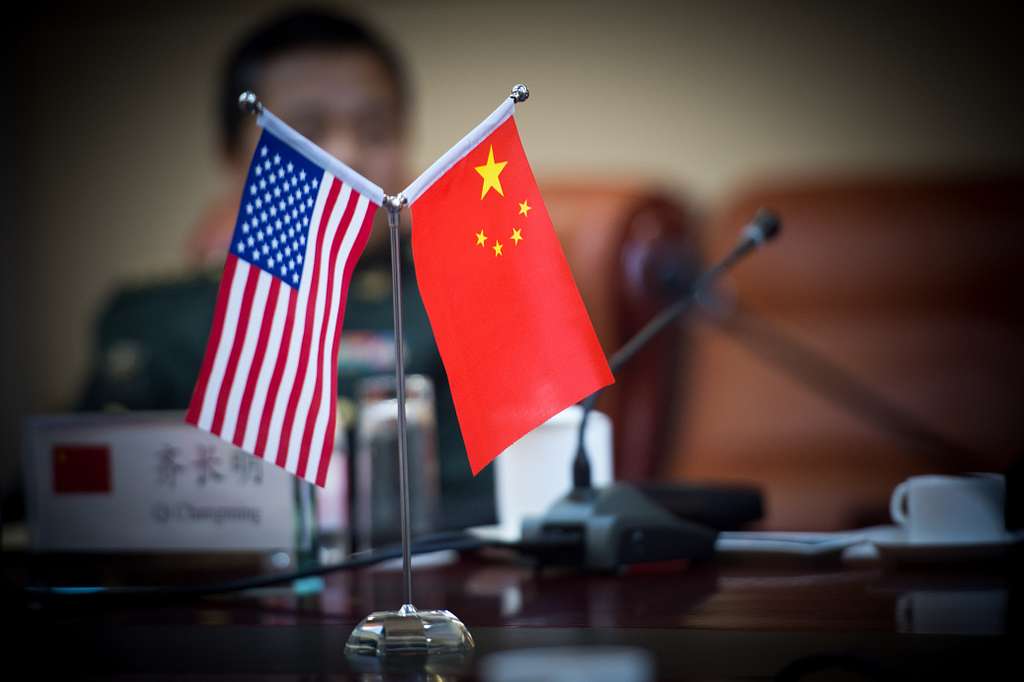The U.S. Can Prosecute Russian Leaders for War Crimes
A U.S. prosecution under the War Crimes Act might be simpler than an international war crimes tribunal—and more effective.

Since April 4, when President Biden accused Russian President Vladimir Putin of being a war criminal, many commentators have focused on how Russian leaders might be subject to international war crimes trials. But there is another option that should be on the table: a U.S. prosecution.
It is a remarkable thing for the president of the United States to personally accuse a foreign leader of being a war criminal. Such an allegation should not be made unless it can be backed up, not just by facts but also by action. It’s one thing when a human rights organization alleges war crimes; it is another when the accuser heads an executive branch capable of actually prosecuting war crimes, as Biden does.
Under the War Crimes Act, 18 U.S.C. § 2441, the commission of a war crime is punishable by fine, by imprisonment or, if it results in death, by the death penalty. The statute adopts the definitions of war crimes from a combination of the Geneva Conventions of 1949, the Hague Convention of 1907, and Protocol II to the Convention on Certain Conventional Weapons, which relates to landmines and booby traps. Any number of the listed acts would be satisfied by the intentional killing of civilians alleged to have taken place in Bucha and elsewhere in Ukraine. (On April 12, Biden upped the ante by alleging that Russia is engaged in genocide in Ukraine. Genocide is also punishable under federal law, but proving genocide is likely to be far more difficult than proving individual war crimes, and the number of officials who could be charged with genocide is likely far more limited.)
The major limit on the reach of the U.S. war crimes statute is that the crime must affect either a U.S. service member or a “national of the United States,” which is to say either an American citizen or someone who “owes permanent allegiance to the United States.” Geoff Corn has argued recently in Lawfare that the War Crimes Act should be amended to remove this limitation, but as the scope of war crimes allegations grows in Ukraine, so does the likelihood that the War Crimes Act’s limitation will be satisfied.
As Ukrainian forces advance into formerly Russian-held areas of Ukraine and the full scale of possible war crimes become clear, one way the United States can pursue accountability is to ascertain whether any of the individuals harmed by Russian forces are nationals of the United States. If so, then there would be no need for an ad hoc international tribunal, like the International Criminal Tribunal for the Former Yugoslavia, or a trial by the International Criminal Court, whose proceedings are not only notoriously drawn out but whose legitimacy is undermined by U.S. refusal to join. Although an American prosecution would be “international” in the sense that one country would be holding another to account, the trials could take place in U.S. federal court under well-established and fair procedures.
That is not to say that such trials might be easy to bring about. It would be difficult for a U.S. court to obtain jurisdiction over Russian leaders or military officers. And a U.S. federal trial for war crimes would certainly result in enormous international tension between the United States and Russia. This option is not necessarily easier than pursuing an international tribunal, but it is simpler.
Despite these obstacles, a U.S. prosecution could be more straightforward than trying alleged war criminals in an international forum. International war crimes tribunals have a reputation for being not only complex but also ineffective. Successful prosecutions for war crimes are so rare that, for many, such prosecutions virtually establish the ineffectiveness of international accountability mechanisms.
Labeling conduct as a war crime has the potential to become meaningless if it simultaneously signals that the case should be heard by ad hoc tribunals that don’t yet exist or international courts to which one’s own country does not even subscribe. It can be a way of claiming that a wrong has been committed but simultaneously signaling that nothing will be done about it. Doing nothing should not be an option; it is potentially a disservice both to Ukraine and to the law of war crimes. It is tempting to hand-wave at the complexities of using international tribunals, but if every time someone mentions war crimes they point to ineffective tribunals, it runs the risk of diluting the credibility of that allegation.
The combination of modern communications technology, U.S. intelligence and Russian military policy may result in an especially well-documented set of potential war crimes in Ukraine. If the U.S. president is going to allege that Russians, and Vladimir Putin himself, have engaged in war crimes, the victims of these crimes deserve to have that allegation backed up with action. Biden isn’t just a commentator pointing out potential war crimes; he has the tools at his disposal to do something about them.




-2.jpg?sfvrsn=f979c73d_6)
